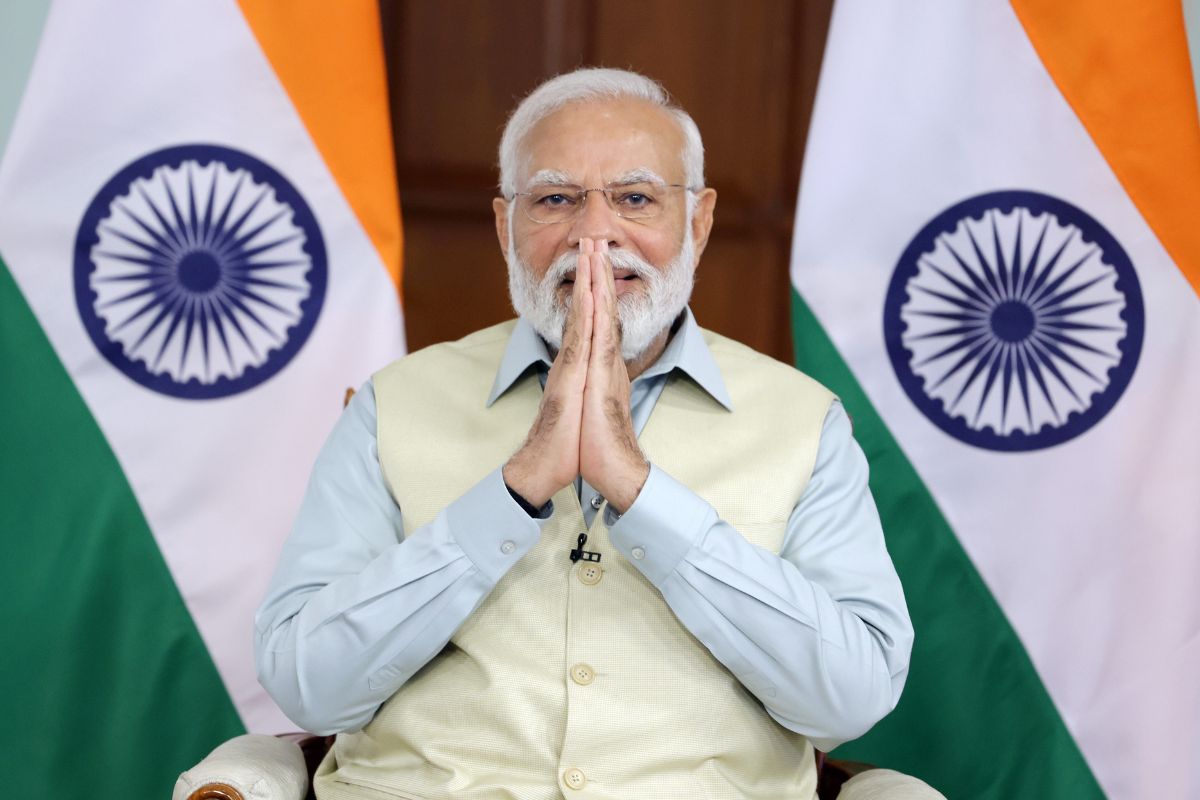Ambedkar, Constitution hog political discourse in Bihar
In an apparent move to counter the Congress party’s campaign focused on the Constitution of India and Dr Bhimrao Ambedkar, the Bihar unit of the BJP has launched the Samvidhan Gaurav Abhiyan.

PM Narendra Modi [File Photo]
The Union Cabinet chaired by Prime Minister Narendra Modi on Wednesday approved the expansion of the Digital India programme, which was launched on 1st July, 2015 to enable digital delivery of services to citizens.
This was announced at a press conference jointly addressed by Railways, Communications, Electronics & Information Technology Minister Ashwini Vaishnaw and Information and Broadcasting Minister Anurag Thakur.
Advertisement
The total outlay of the expansion will be Rs 14,903 crore. The expansion has been planned as the programme has proved quite successful in achieving its objectives.
Advertisement
The programme will now enable reskilling and up-skilling of 6.25 lakh IT professionals under the Future Skills Prime Programme; while 2.65 lakh persons will be trained in information security under the Information Security & Education Awareness Phase (ISEA) Programme.
The expansion envisages making 540 additional services to be available under the Unified Mobile Application for New-age Governance (UMANG) app/platform. At present over 1,700 services are already available on UMANG;
Nine more supercomputers will be added under the National SuperComputer Mission. This is in addition to 18 supercomputers already deployed. Bhashini, the AI-enabled multi-language translation tool (currently available in 10 languages) will be rolled out in all 22 Schedule 8 languages.
There will be modernisation of the National Knowledge Network (NKN) which connects 1,787 educational institutions; digital document verification facility under DigiLocker will now be available to MSMEs and other organisations; and 1,200 start-ups will be supported in Tier 2 and Tier 3 cities.
Centres of Excellence will be set up in Artificial Intelligence on health, agriculture and sustainable cities; cyber-awareness courses will be started for 12 crore college students; and new initiatives in the area of cyber security including development of tools and integration of more than 200 sites with National Cyber Coordination Centre, will be done.
Today’s announcements will give a boost to the digital economy of India, drive digital access to services and support India’s IT and electronics ecosystem.
Advertisement